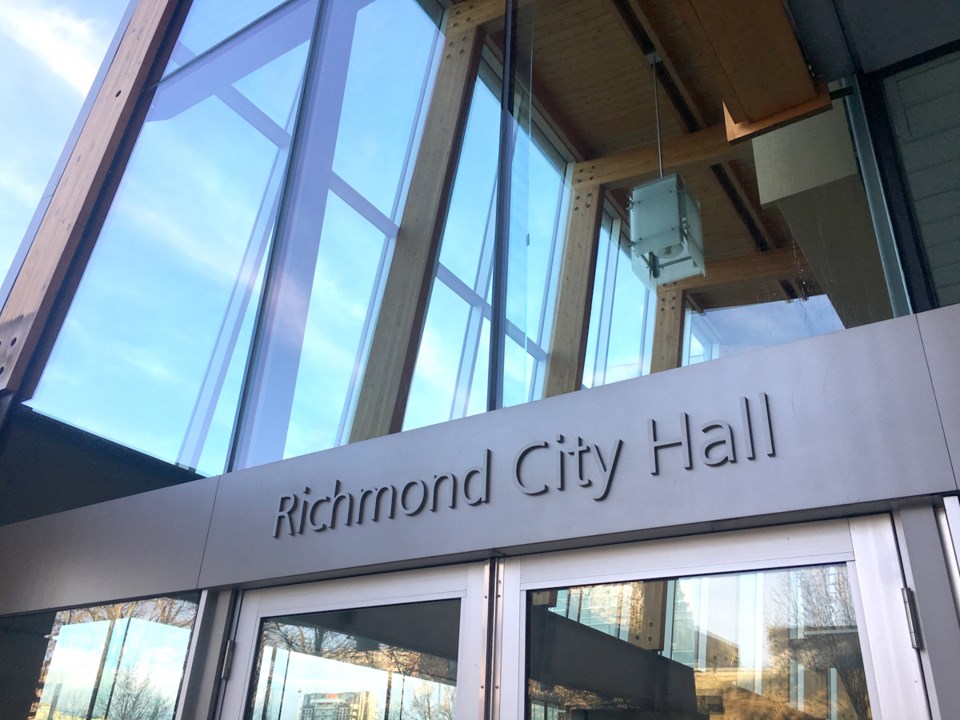The impact of the COVID-19 pandemic on business is obvious in the streets of Richmond with many sectors paralyzed, but the crisis is also taking a toll on municipal revenues.
Civic facilities like pools, arenas, the Oval and community centres remain closed with no revenue from programs, but other sectors, like gaming and tourism, could also have an impact on the city’s bottom line.
Nevertheless, Richmond Mayor Malcolm Brodie said, despite not knowing what the “total picture” will be, he’s confident the city will manage if the crisis continues for two to three months or even longer.
“I think we have the resources to weather the storm – depending on a lot of things, including how long it goes on,” he said.
But much will depend on what tools the province gives the city, for example, running a deficit, borrowing or dipping into reserves, he said.
“The biggest single factor we’re looking towards is exactly what is the approach of the province,” Brodie added.
He pointed out a group of Lower Mainland mayors sent a letter to the Minister of Municipal Affairs and Housing already on March 23 asking for some ways to deal with the situation, Brodie said, and they are currently waiting for a response.
The 2020 Richmond budget, passed by council in December long before the COVID-19 crisis, anticipated city revenues of $334 million with taxes and levies contributing almost 70 per cent.
The COVID-19 pandemic is “unchartered” territory, Brodie said, and there are many “imponderables” that makes for difficult discussions and analysis.
One possibility council is considering – while looking at the entire revenue stream – is to defer property taxes, Brodie said, but this would come with both pros and cons. If they were deferred, residents would have more time to recover economically and would be more likely be able to pay their taxes, but the city also has to be cognizant of cash flow to cover financial obligations, he explained.
About half the property tax bill doesn’t go to the city but covers things like school tax and Metro Vancouver levies with varying due dates.
“We have to see what kind of adjustments we may wish to make but there are ramifications outside the city organization that are important to take into account,” Brodie.
In its 2020 budget, the city estimated it would receive $14.5 million this year in casino revenue – on average about $1.2 million per month – representing four per cent of its total revenues. But River Rock Casino has been closed since March 15.
And not only is the casino closed, so is the River Rock hotel, one of three hotels in Richmond that was recently closed, as international travel and conferences are cancelled amid the COVID-19 crisis.
Besides the large-scale impact on the tourism businesses – estimated to be worth $2 billion annually with 3.5 million overnight stays in Richmond in 2017 – the hotel tax generates income for the city. This was about $6.5 million in 2018, of which one-third, about $2.15 million, went to the city. (The other two-thirds goes to Tourism Richmond.)
As for closed civic facilities, the city’s budget anticipated $12 million in annual revenues in 2020 including recreation, arts and cultural programs – 84 per cent of this would have been from fees.
The city’s investment income was expected to bring in five per cent of the city’s budget in 2020. While stock markets have taken a hit lately, because of municipal finance regulations, the city’s doesn’t invest in equity markets, explained Clay Adams, Richmond city spokesperson, so its reserves aren’t subject to market volatility.
On Wednesday, Vancouver Mayor Kennedy Stewart appealed to the province for financial relief, asking for $200 million to help that city during the COVID-19 crisis.
Stewart said a worst-case scenario of the COVID-19 crisis continuing until December, Vancouver would have a deficit of $189 million, equivalent to a 24-per-cent property tax increase.
In a best-case scenario of a May return to normal, Stewart said the city’s budget deficit would be $61 million.



